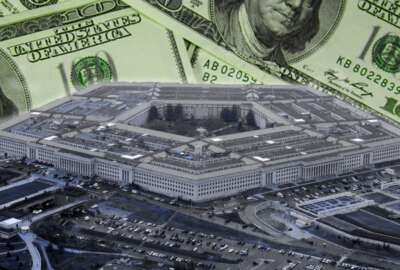
The end is near — again
If history repeats itself, the budget President Donald Trump sent to Congress Monday afternoon will again be a political bombshell
If history repeats itself, the budget President Donald Trump sent to Congress Monday afternoon will again be a political bombshell. It will produce weeks of headlines, months of commentary and then, in this critical national election year, pretty much fizzle out over the summer. Before it was sent to Capitol Hill, leaks abound. Among them that places like NASA, the Department of Veterans Affairs and Homeland Security would get more money and people. And that places like EPA, HUD and Commerce would be in line for cuts. No surprises there.
The budget was still under embargo at this writing, but for a look at the actual proposals relating to the federal workforce are, click here.
But whatever the proposals, think of it is a shopping list filled out by hundreds of dedicated, but also sometimes distracted, people. Some career civil servants, some political appointees. It is then turned over to 535 different people, in the House and Senate, who will pass it on to their staffs. And often be guided by political interests and or lobbyists who can help them get funds and votes.
Although already deeply in the red, the people who approve the final budget will have to borrow money to pay for whatever they approve. This is not a fashionable inside-the-beltway knock against President Trump. This is generally true and what happens whether the president is a Republican, Democrat or anything else. It’s what we do here. And many long-suffering federal workers know the drill.
Career civil servants, depending in part on how long they’ve been on the job, will either be horrified by what’s in it for them and maybe update plans to retire, or ignore it altogether. The best approach, probably, is not to panic but to stay tuned. Just in case.
The president either will recommend a modest federal pay raise for 2021 or be silent on the issue. Either way doesn’t matter much. This year, anyhow. Election years often produce federal pay raises, sometimes very generous ones, regardless of who is president. If, like last year, he doesn’t propose a raise, Congress is likely approve one anyhow. House Democrats made sure of that and the GOP-controlled Senate went along with a squawk. There are even more House Democrats this year, so the focus will probably be on how much, rather than what if.
The only mystery this year is which of the “usual suspects” the administration will propose — if any. These are a collection of regularly proposed legislative changes that would save taxpayers millions of dollars over the next decade. Meaning it would cost federal workers more either in higher contributions toward their Federal Employees Retirement System (FERS) plan while working. or worse yet, when they retire on pension payments that are frozen rather than linked, as now, to inflation. Currently Civil Service Retirement System (CSRS) retirees get a full cost of living adjustment each January based on the rise in the Consumer Price Index-W, which tracks prices in urban areas. FERS retirees get a full COLA up to 2%. After that they get so-called diet COLAs, which can be as much as one percentage point less than the actual rise in inflation. In previous budgets the White House has proposed reduced future COLAs for CSRS retirees and eliminating COLAs entirely for FERS retirees. In the unlikely event that happens, FERS pensions would be frozen even as prices for everything from health premiums to food and housing, continue to rise. Over decades of retirement that would dramatically reduce the standard of living for the retirees.
Other proposals from the past—that may work their way into this budget plan, include:
- Eliminating the FERS supplement that goes to workers who retire before they are eligible for Social Security at age 62. Now those people, some of whom are forced to retire because of their jobs, get a “gap” payment to cover the shortfall between their retirement and what they would have gotten under Social Security. Eliminating it would be a major blow to federal firefighters, air traffic controllers, law enforcement personnel and others who have to retire in their 50s.
- Reducing the CSRS COLA in future.
- Eliminating any future COLA for FERS retirees.
Bottom line: Whatever the budget calls for, Congress will ignore some of it, endorse or increase some, and may end up not approving it at all. All of which is as per usual. Don’t panic. And don’t sleepwalk through the year. And if you were ever thinking about joining a union (NTEU, AFGE, NFFE), a management group (SEA, PMA, FMA) or a group representing both active and retired feds (NARFE), this would be a very good time.
Nearly Useless Factoid
By Alazar Moges
Taco Bell is one of the most popular fast food chains in America. The logo features a bell but the highly successful chain was not named after the instrument. It actually takes its name from the man who opened the first one, Glen Bell.
Source: Taco Bell
Copyright © 2024 Federal News Network. All rights reserved. This website is not intended for users located within the European Economic Area.
Mike Causey is senior correspondent for Federal News Network and writes his daily Federal Report column on federal employees’ pay, benefits and retirement.
Follow @mcauseyWFED





